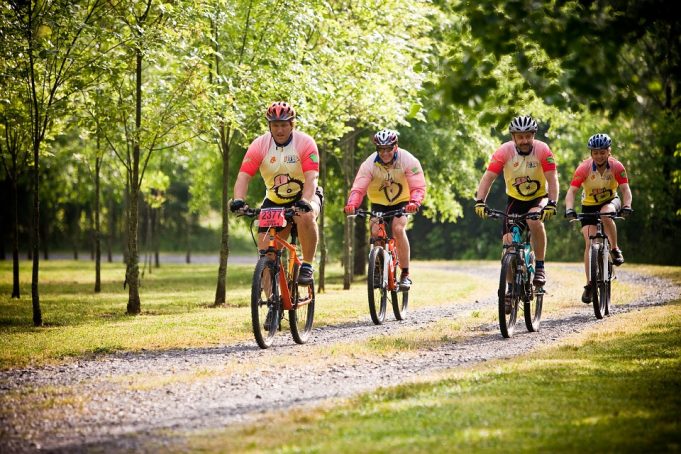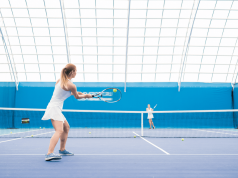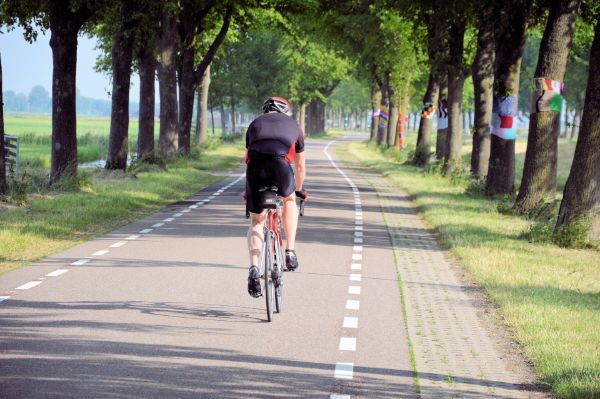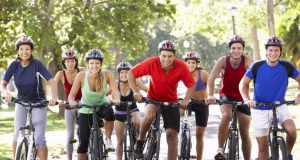Cycling Safely Means Having The Right Basic Equipment
Many people see cycling as a dangerous activity, with a high potential for accidents, but statistically the health benefits outweigh the dangers by more than twenty to one. So you’d actually be crazy to be put off riding a bike for health reasons. However there are several measures you can take to improve your own safety, whether you are cycling to work every day or cycling for fun or sports at the weekends. Buying safety equipment and using it sensibly will keep you safer when cycling on the roads and cycle routes and reduce the chance of accidents.
Bicycle Helmets
Helmets protect your head, this is no surprise. Even though there may be no law requiring bicyclists to wear head protection, smart bikers know that it is very easy to injure your head in a bike accident. Provided that the helmet fits properly and meets certain industry standards, it will provide adequate protection in a fall. If you ever do crash while wearing your helmet, it will need to be replaced as they are designed to absorb the impact and collapse because of it.
Lights On Your Bike
If you are commuting to work by cycling in the shorter winter days you will certainly need to have approved lights on your bike. It is a legal requirement to use those lights in hours of darkness and it also keeps you safer as you can be seen by other vehicles. Modern LED lights are bright and convenient to use, easily removable when you lock your bike up at work. The LEDs use little energy and last for ages, so can be relied on for continuing bright illumination when you’re cycling.
Reflectors
Cycling after dark with just a light is not optimal. Other bicyclists and drivers may be able to see you, but a single, static light offers very little information about your real speed and heading. Reflectors placed on the pedals, spokes, and ankles can substantially improve your visibility – and therefore safety – by providing dynamic and more accurate indicators as to where you are and how you are moving. Reflective strips require no power and are very inexpensive, so they should be considered essential safety equipment.
Load Carrying
For most people, it is important to have at least some cargo capacity on their bike. Many bikes come standard with pannier racks, and the addition of a couple of pannier bags will greatly increase the carrying capacity of the vehicle, allowing you to carry books, shopping, your lunch, or whatever you need to transport. For even more space, consider a front mounted pannier rack and bags, or even a handlebar basket. If you’re looking for the ultimate in bicycle cargo solutions, it might be time to investigate trailers. There are many kinds of bike trailers which can easily handle a week of shopping, small pieces of furniture, or even your pets or children. Maybe the car isn’t the only way to transport things around after all!
Clothes
You don’t have to have special clothing for everyday cycling but it certainly helps. Waterproof clothing is essential if you are commuting daily and high performance cycling clothing can keep you dry without you drowning in perspiration instead. Cycling clothing is designed to be layered. First a base layer that wicks perspiration from your skin, a thermal layer to keep you warm, then an outer layer that is breathable but waterproof. Each layer transfers moisture from perspiration outwards, so you don’t build up an uncomfortable sweat. Cycling clothing is also designed for the position you will be in, with extra cuts and vents to allow movement but still protect from the weather. Cycling gear can double up as normal weatherproof gear quite easily, so is less of an outlay than it might at first seem – you can wear your cycling jacket as a rain jacket, your cycling gloves as winter gloves and so on. You don’t need to buy all the gear, and emulate a rider in the Tour de France, if you will just be cycling to the shops now and then, but having just a few items that layer and vent will make your cycling that much more enjoyable.
About the Author
You need to start cycling safely right now. Look into David Salmon the Cycling Coach, because he can teach you a lot of things about cycling safety.



















